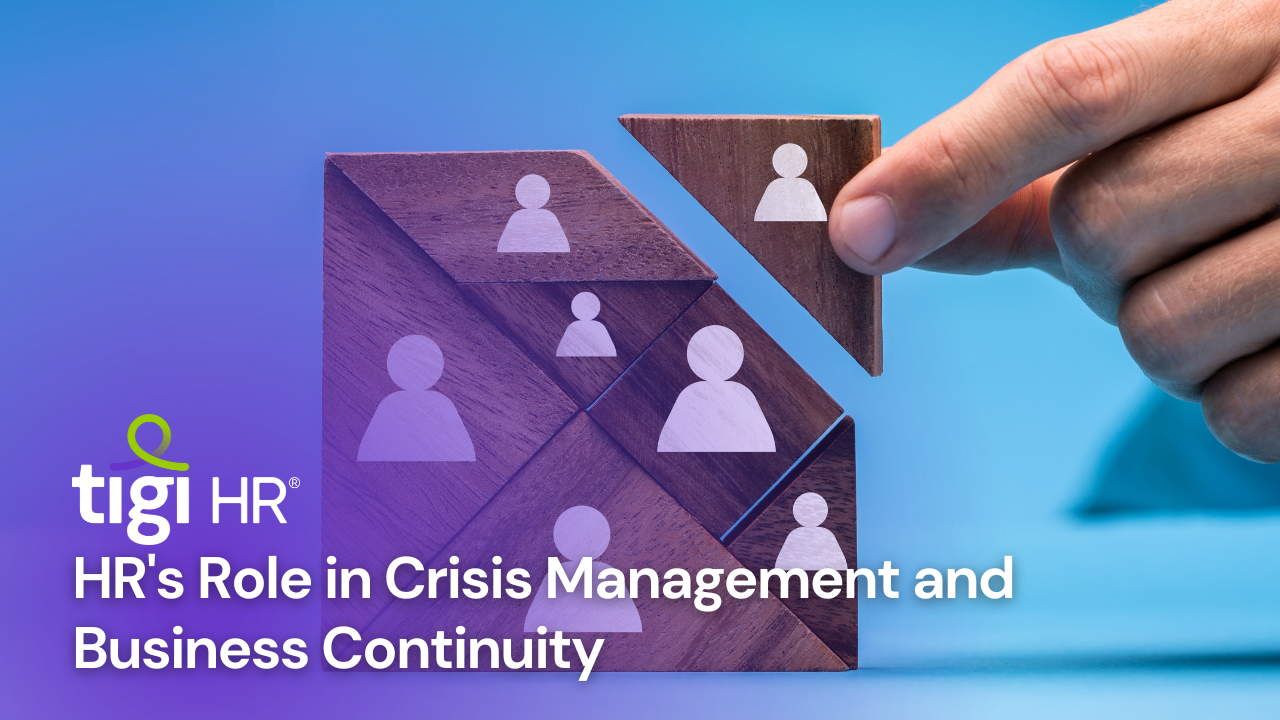In the ever-evolving landscape of modern business, the ability to navigate through crises and ensure continuity is a defining trait of successful organizations. Crises can come in various forms, from economic downturns to natural disasters, pandemics to cybersecurity breaches. While the role of HR is often undervalued in such situations, this article aims to shine a spotlight on the indispensable role that Human Resources (HR) plays in crisis management and business continuity.
Crisis Preparedness: The Foundation for Resilience
HR serves as the backbone of crisis preparedness. It begins with the creation and maintenance of a robust crisis management plan. Collaborating with other departments, HR professionals identify potential risks, define communication strategies, and assemble an agile crisis response team. This groundwork ensures the organization is ready to respond effectively to any crisis that may arise.
The Art of Communication
Effective communication is the linchpin of crisis management. HR takes on the mantle of keeping employees well-informed about the crisis, the organization’s response, and the expectations from them. This includes developing clear and transparent messaging. HR also offers vital support, addressing emotional distress among employees and providing a lifeline of reassurance in turbulent times.
Employee Well-being as the North Star
Amid a crisis, HR takes center stage in championing employee well-being. This goes beyond their work lives and extends into their personal lives as well. HR departments offer support and resources to help employees navigate the emotional toll of a crisis. A stable and cared-for workforce is not only more resilient but also crucial for business continuity.
Talent Management: Adapting to the Storm
HR manages talent with dexterity during crises. They assess staffing requirements, reassign employees to key roles, and, in some cases, make the difficult decisions like layoffs or furloughs. These decisions must be made with a keen understanding of long-term effects on employee morale, engagement, and the organization’s image.
Enabling Remote Work and Technological Innovation
The COVID-19 pandemic illustrated the significance of HR’s role in enabling remote work and technological innovation for business continuity. HR ensures that employees have the tools and support needed to work effectively from home. This extends to addressing cybersecurity concerns, ensuring the protection of sensitive data, and upholding the integrity of the organization’s operations.
Legal Compliance: Navigating the Legal Maze
HR must remain well-versed in the legal and compliance aspects of crises, encompassing labor laws, healthcare regulations, and safety standards. They play a pivotal role in ensuring that the organization adheres to these regulations during the crisis, mitigating potential legal risks and liabilities.
Post-Crisis Recovery and Adaptation
Beyond the crisis itself, HR’s role endures in the recovery and adaptation phase. They facilitate the reintegration of employees into the workplace, offer counseling and mental health resources, and leverage the crisis as a learning opportunity to enhance the organization’s crisis management plan for the future.
Conclusion
In summary, HR is the unsung guardian angel of crisis management and business continuity. Their duties span the entire crisis spectrum, encompassing preparedness, communication, talent management, remote work facilitation, legal compliance, and recovery. Acknowledging and respecting the vital role that HR plays is pivotal for organizations looking to remain resilient and ensure uninterrupted operations. As businesses continue to navigate turbulent waters, recognizing HR as a linchpin in crisis management is not just prudent—it’s essential for success. With HR as their guardian angels, organizations can steer through any storm that challenges them.
How can job seekers enhance success in a competitive market?
Find Supercharge Your Job Search: Leveraging Recruitment Resources for Success
Landing your dream job today requires more than just a good resume. Utilize online job boards, network through events and LinkedIn, work with recruitment agencies, explore company career pages, join professional organizations, use career centers, and engage on social media. Diversify resources for success in a competitive job market.
Find trusted recruitment agencies : Click here





